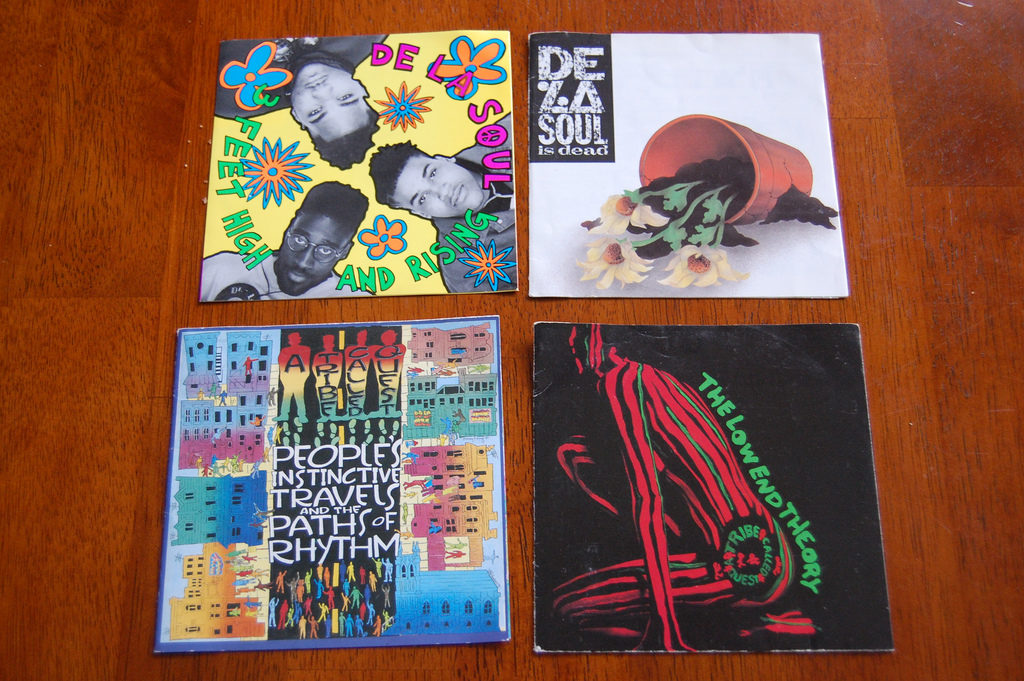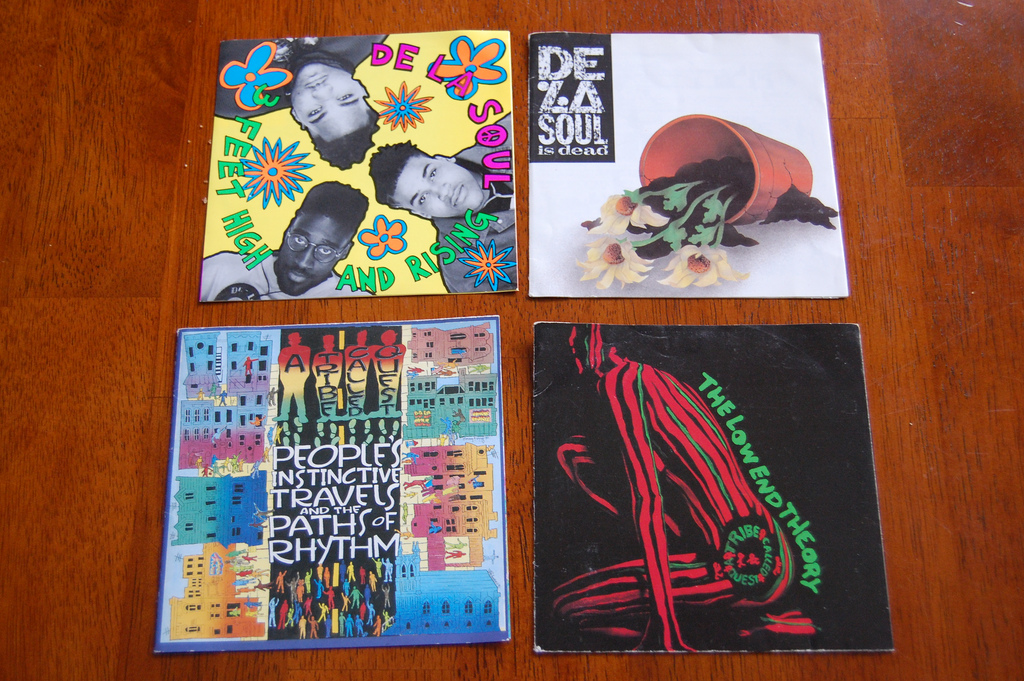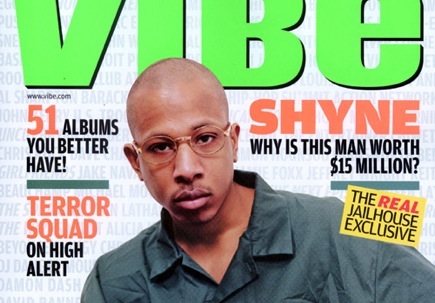
Just For Men, the affordable hair coloring product, can do wonders for an aging man. Apply liberally via a comb through and Silver Fox tresses suddenly become fully-restored follicles. If only there was such an elixir for aging rappers.
Hip-hop, however, has always been a young-man’s game as evidenced by early ‘90s prodigies like a Nas and affirmed more recently by acts such as Rae Sremmurd, Young Thug and Chance The Rapper, to name only a few.
Yet as the culture of rap begins to grey we find rappers who are well into their ‘40s, including Jay Z (46), Eminem (44) and Nas (43), still relevant if not productive. These titans of spit are exploring the boundaries of legacy, leveraging their prowess in business deals and touring extensively — in Jay’s case, in a mixture of configurations (Beyoncé and Jay Z, Jay Z and Justin Timberlake, album anniversary one-off performances) — in hopes of becoming the Jimmy Iovine or Rolling Stones of hip-hop. It’s a strategy that’s safer to one’s reputation than making new music, where an awkward flow or dated production choices can prove to be damning, relegating an MC to obsolete status.
Which brings us to A Tribe Called Quest and De La Soul, two groundbreaking New York rap groups who served up classic albums with a healthy sense of self-awareness, righteousness and funky beats.
Both Native Tongues outfits released new projects, in August and earlier this month, respectively, the first for each group in over 10 years.
A Tribe Called Quest’s We got it from Here… Thank You 4 Your service is a spry effort, one full of gumption and verve. From the start, Tribe kicks it, assailing the lack of upward mobility provided to the Black community on “The Space Program.” Jarobi White, who Q-Tip described as the soul of the group, quickly reminds folks why he’s back in the fold. The often overlooked rapper left the group after their debut, 1990’s People’s Instinctive Travels and the Paths of Rhythm, to become a chef. He can cook, alright:
“They planning for our future, none of our people involved/ Pouring Henny and Smirnoff to get it cracking off/ Cracking off a Smirnoff to quickly turn to Molotov,” Jarobi raps.“Molotov the spaceship doors before that bitch is taking off/ It always seems the poorest persons are people forsaken, dawg.
Combined with the album’s second track, the overtly political “We The People,” the opening salvo on Thank You 4 Your service makes the project impossibly timely under a Trump administration, a feat the group couldn’t have predicted, particularly given Q-Tip’s reference of a female president on the latter track.
Throughout the album, Q-Tip, who also serves as the group’s main producer, is inspired in his musical compositions. Across the Queens collective’s career, Tip shared production duties with fellow ATCQ member Ali Shaheed Muhammad and later Detroit beat maestro Jay Dee; the trio billed itself as The Ummah.
Whereas The Ummah favored jazz samples as a counterbalance to sly lyrics, which provided a whimsical approach to their messaging, here, Q-Tip, the album’s sole producer, instead opts for a series of rock samples. Black Sabbath’s “Behind The Wall Of Sleep” and Gentle Giant’s “Prologue” are flattened, slowed down and provide “Solid Wall of Sound” and “Mobius” with heft.
The former work features Jack White on guitar while Q-Tip, Elton John, and Phife Dawg and Busta Rhymes in dueling patois, are a football pile on of surging voices. The guest list on the album is familiar, a mix of old friends and those influenced by ATCQ: Busta (“Mobius”) and Cons (“Whateva Will Be”) sound phenomenal, meanwhile André 3000 (“Kids”) and Kanye West (riding shotgun on “The Killing Season”) get to live out rap camp fantasies. This provides a comfort to the project as Thank You 4 Your service easily has a home in the Tribe discography; it feels and sounds like a Tribe album without being drenched in nostalgia and also has the added benefit of sounding like it could bookend J.Cole’s most recent work.
But Q-Tip and Phife aren’t interested in an award tour solely off their reps.
To wit, Tip’s best work isn’t just behind the boards. His flow has evolved, where he flirts with different deliveries on “Ego” and “Melatonin,” from his familiar conversational tone to ludicrously speedy. And Phife is as punchy as ever on “Black Spasmodic” and “Conrad Tokyo.”
“I take zero for granted, I honors my gift/ Champion pen game, plus I’m freestyle equipped/ You clowns be bum sauce, speak my name, it’s curtains/ Hamdulillāh, my crew’s back to workin’,” Phife spits on “Conrad Tokyo,” a collaboration featuring Kendrick Lamar. “Just done mash a show, Dawg is off on sabbatical/ Rather watch the Nixon shit than politicians politic.”
Phife, who passed away in March of this year due to complications from diabetes, is touchingly eulogized on “Lost Somebody,” where personal connections from childhood rise far higher than any of the ugly disagreements that publicly surfaced between him and Q-Tip in the 2011 documentary on the group.

De La Soul never had a Phife, for better (a 1B option if there ever was one) or worse (the aforementioned tragedy).
But Posdonous, Dave fka Trugoy the Dove and Maseo weren’t without their share of drama.
For instance, none of their early, high-flying work (3 Feet High and Rising, De La Soul is Dead) is available on any streaming service. The Long Island rap group, who led a creative revolution with their album skits and production dexterity, had a long battle over the years with the sample police — and lost. So, for their latest LP, and the Anonymous Nobody, they launched a successful Kickstarter campaign to raise money…to not pay for samples but to create a band so they could, in effect, sample themselves. The results are mixed.
The familiar detached, wry observation is there in abundance. Dave quips “Androids read raps off iPhones” on the opening “Royalty Capes” and Pos delivers gems over long-time collaborator Super Dave West’s driving snares: “Stop being an MC and give your verses more weight by just being M-E” on “Property of Spitkicker.com.”
De La Soul was always more eclectic than their counterparts and their guest list reflects that (Snoop Dogg, Roc Marciano and Talking Heads’ David Bryne.)
Guests, however, often lead off songs throughout Anonymous, from Estelle to Little Dragon’s Yukimi Nagano, and the songs can feel like those artists featuring Pos and Dave instead of the other way around. This is especially true on “Drawn,” an airy number where Nagano and band take control to the dismay of good Pos word play, which is buried on the last 30 seconds on the song.
“I didn’t mean to be a whore, but my hormones had me like a fiend screamin’/ “What you got for me?”/ Two words (I’m mortal)/ But the fans lift ‘em both together and remove the apostrophe.”
Where ATCQ gave the people what they want (its also in part a tribute album that drove them there), Anonymous Nobody sounds less like a De La album, at least logically, and more like a project by the members of De La with others. Considering the way it was composed, with a band and backing by Kickstarter…it is. The nobodies.
When the group experiments, like on “CBGB’s” with its bluesy mix, we get a quirky, aloof reminder of De La Soul at their best. On the other hand, “Greyhounds” is a cool concept — a POV tale from the perspective of strivers left behind at the bus station — undermined by Usher’s breathy, over-sung vocals.
But just as We got it from Here… Thank You 4 Your service isn’t without misses (unnecessary guitar solos, for starters) and the Anonymous Nobody isn’t without merits (the 2 Chainz-assisted “Whoodeeni” and “Nosed Up” are standouts).
At a time though when Eminem (“Campaign Speech”) and Nas (“Nas Album Done”) are being applauded for standard fare and Jay Z is poked at for dabbin, Tribe and De La prove that the usual doesn’t have to be suitable. They’re still in a grey area, so to speak. But each, in their own ways, has found their own powerful potion.

